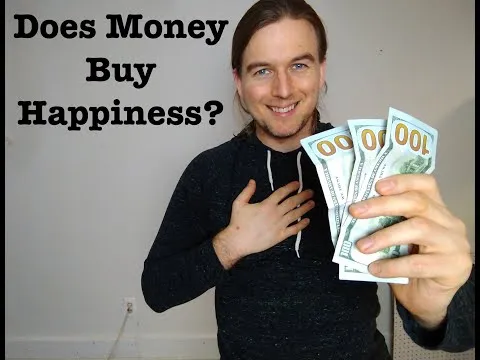This video gives you ways to address your debt and money concerns through healthy psychological ways. Feel free to check it out!
REFERENCES
Atkin, Dunn, & Norton (2012). Happiness runs in a circular motion: Evidence for a positive feedback loop between prosocial spending and happiness. https://psycnet.apa.org/record/2012-08478-009
Becchetti, Corrado, & Rossetti (2011). The Heterogeneous Effects of Income Changes on Happiness https://eric.ed.gov/?id=EJ944107
Connors, Khamitov, Moroz, Campbell, & Henderson (2016). Time, money, and happiness: How does putting a price on time affect our ability to smell the roses? https://psycnet.apa.org/record/2011-30240-001
DeVoe & Pfeffer (2009). When is happiness about how much you earn? The effect of hourly payment on the money—Happiness connection. https://psycnet.apa.org/record/2009-22138-005
Diener (1984). Subjective well-being. https://psycnet.apa.org/record/1984-23116-001
Diener & Diener (1996). Most People Are Happy https://journals.sagepub.com/doi/10.1111/j.1467-9280.1996.tb00354.x
Donnelly, Zheng, Haisley, & Norton (2018). The Amount and Source of Millionaires’ Wealth (Moderately) Predict Their Happiness https://journals.sagepub.com/doi/10.1177/0146167217744766
Dunn, Aknin, & Norton (2014). Prosocial spending and happiness: Using money to benefit others pays off https://journals.sagepub.com/doi/abs/10.1177/0963721413512503
Garđarsdóttir, Dittmar, & Aspinall (2009) It's not the money, it's the quest for a happier self: The role of happiness and success motives in the link between financial goals and subjective well-being. https://psycnet.apa.org/record/2009-22826-002
Hershfield, Mogilner, & Barnea (2016). People who choose time over money are happier https://psycnet.apa.org/record/2016-39849-010
Johnson & Kreuger (2006). How money buys happiness: Genetic and environmental processes linking finances and life satisfaction. https://psycnet.apa.org/record/2006-05169-011
Kurz, Li & Vine (2018). Are Millennials Different? https://www.federalreserve.gov/econres/feds/files/2018080pap.pdf
Mann & Gilovich (2016). The asymmetric connection between money and material vs. experiential purchases. https://psycnet.apa.org/record/2016-41126-009
Mogliner (2019). It's time for happiness https://pubmed.ncbi.nlm.nih.gov/30031356/
Quoidbach, Dunn, Petrides, & Mikolajczak (2010). Money giveth, money taketh away: the dual effect of wealth on happiness. https://pubmed.ncbi.nlm.nih.gov/20483819/
Richards. (2016). For whom money matters less: Social connectedness as a resilience resource in the UK https://psycnet.apa.org/record/2015-00270-001
Richardson, Elliott, & Roberts (2013). The relationship between personal unsecured debt and mental and physical health: a systematic review and meta-analysis https://pubmed.ncbi.nlm.nih.gov/24121465/
Ruberton, Gladstone, & Lyubomirsky (2016). How your bank balance buys happiness: The importance of "cash on hand" to life satisfaction https://pubmed.ncbi.nlm.nih.gov/27064287/
Sengupta et al. (2012). How much happiness does money buy? Income and subjective well-being in New Zealand https://psycnet.apa.org/record/2012-30911-003
Whillans, Dunn, Smeets, Bekkers, & Norton (2017). Buying time promotes happiness https://pubmed.ncbi.nlm.nih.gov/28739889/
Whillans, Weidman, & Dunn (2016). Valuing Time Over Money Is Associated With Greater Happiness https://journals.sagepub.com/doi/10.1177/1948550615623842
Wilcox, Barbaro-Kukade, Pietrantonio, Franks, & Davis (2019). It takes money to make money: Inequity in psychology graduate student borrowing and financial stressors. https://psycnet.apa.org/record/2019-72132-001
Zhang, Tian, & Grigoriou (2011). Gain face, but lose happiness? It depends on how much money you have. https://onlinelibrary.wiley.com/doi/abs/10.1111/j.1467-839X.2010.01336.x
